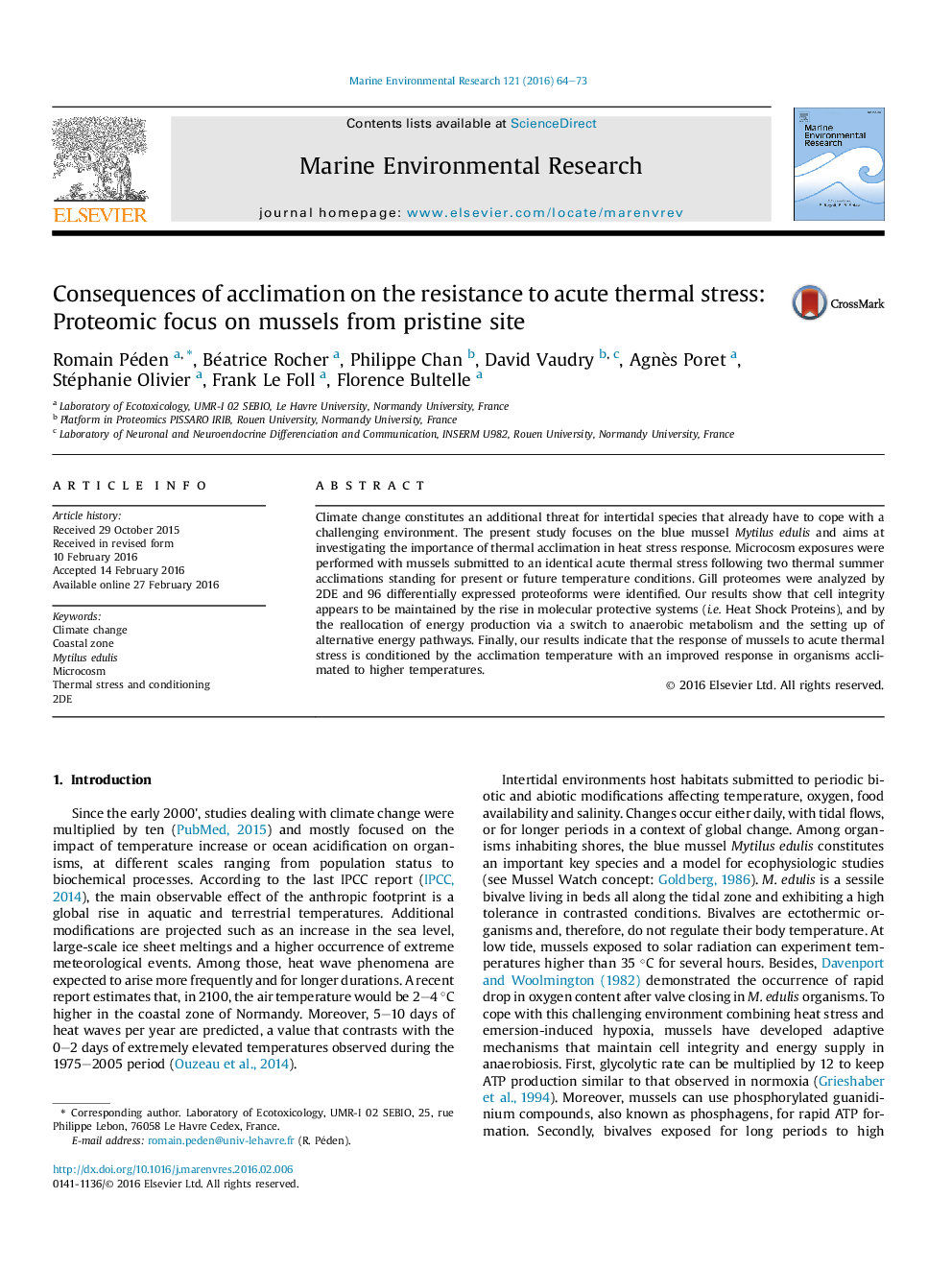| Article ID | Journal | Published Year | Pages | File Type |
|---|---|---|---|---|
| 4550569 | Marine Environmental Research | 2016 | 10 Pages |
•Mussels were acclimated to two temperatures prior to an acute thermal challenge.•After 2DE, 96 of 111 differentially expressed gill proteins were identified.•According to acclimation scenario, the response to thermal stress differs.•The study underlines the role of the sponge protein sHSP24.1.•Higher temperature conditioning enhanced protective and energetic processes response.
Climate change constitutes an additional threat for intertidal species that already have to cope with a challenging environment. The present study focuses on the blue mussel Mytilus edulis and aims at investigating the importance of thermal acclimation in heat stress response. Microcosm exposures were performed with mussels submitted to an identical acute thermal stress following two thermal summer acclimations standing for present or future temperature conditions. Gill proteomes were analyzed by 2DE and 96 differentially expressed proteoforms were identified. Our results show that cell integrity appears to be maintained by the rise in molecular protective systems (i.e. Heat Shock Proteins), and by the reallocation of energy production via a switch to anaerobic metabolism and the setting up of alternative energy pathways. Finally, our results indicate that the response of mussels to acute thermal stress is conditioned by the acclimation temperature with an improved response in organisms acclimated to higher temperatures.
